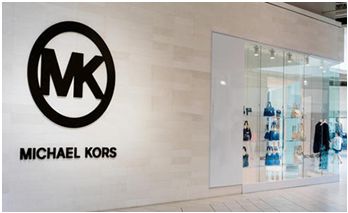Luxury brand Michael Kors has been enjoined from using its MK logos standing alone because the MK mark had been previously registered by a local Chinese handbag factory according to a recent ruling by China's Zhejiang High Court, which affirmed a lower court's decision.
Shantou City Chenghai District Jian Fa Handbag Crafting Factory ("JF Factory") is a sole proprietorship owned by a Chinese individual, Tang Jianzhong. JF Factory started selling purses and other craft goods in 1993 and registered the word mark MK (which it said stood for Magnificent Knight) for handbags with the China Trademark Office in 1999. The Court found that JF Factory has done a small but steady business exporting clothing, purses, and similar goods decorated with pearls under the MK word mark from China to the Middle East, Greece, and Japan.
While it appears that Michael Kors was founded in 1981, it is unclear from either of the court decisions whether it had used its MK mark (either in China or anywhere else) before JF Factory's registration of the mark in China (or, if it did, whether JF Factory was aware of any such use). Michael Kors entered the Chinese market in 2011 and immediately started using its MK logo on its handbags. As of December 2016, Michael Kors had opened 85 brick-and-motor stores across China and sold its handbags and apparel through third-party E-commerce stores, including www.jd.com, www.tmall.com, www.yhd.com, www.amazon.cn, www.suning.com, and www.kaola.com. Through its stores, as well as it extensive marketing, Michael Kors and its MK logos have become well-known in China.

(Michael Kors's MK Logo Used in Connection with Retail Stores)
Because of JF Factory's prior Chinese registration, Michael Kors opted not to file applications in China to register the MK Logo marks for bags in Class 18 (which covers handbags made of leather and faux leather). Michael Kors continued, however, to use the MK Logo on all of its products, including bags. JF Factory demanded that Michael Kors cease using the MK Logo for bags as it had a prior Chinese registration for a similar logo. Michael Kors refused to stop use of its logo, pointing out that it owned Chinese trademark registration for the MK logos for related goods, including, "key chains" and "crafts made of metal" in Class 6 (which covers metal accessories).
In 2015, JF Factory obtained evidence of reverse confusion—meaning that the consumer confusion is caused by a more powerful junior user (i.e., Michael Kors) using a mark owned by a smaller, less powerful senior user (i.e., JF Factory), and that the junior user achieved greater commercial success than the senior user. In response to these instances of confusion, JF Factory sued Michael Kors in Hangzhou Intermediate People's Court for intentional trademark infringement. The action centered on a dispute over the parties' use of the following marks (JF Factory's on the left and Michael Kors's on the right):
| v. |  |
|
| (JF Factory's Reg. No. 1244366) | (Michael Kors's MK Logos) |
JF Factory demanded a damage award from Michael Kors in the amount of approximately US $14,000,000, and another US $300,000 from E-commerce platforms (which it said were liable for contributory infringement). It based these demands on Michael Kors's 2014 to 2016 revenues in China. The Intermediate People's Court ruled in favor of Michael Kors.
Reviewing the lower court's decision de novo, the High Court initially concluded, as the lower had, that although the marks were nearly identical in appearance and sound, the remaining factor all weighed against a finding of likelihood of consumer confusion. Specifically, the High Court found as a factual matter (again, as the lower court had) that JF Factory targeted consumers who wished to purchase Chinese crafts, such as JF Factory's MK-branded purses embroidered with pearls. In contrast, Michael Kors targeted Chinese consumers who wished to purchase luxury, Western-branded products (Michael Kors's bags were priced between US$180 and $550 each in China, which made them much more expensive than JF Factory's oriental purses). Further, the High Court agreed with the lower court that an average consumer in China would not have confused JF Factory's pearl purses with Michael Kors's modern bags simply because they both used MK logos. Indeed, the High Court also agreed that Michael Kors' targeted consumers were largely women who had above-average income in China and therefore would pay much more attention in making a purchase decision than the general public when it came to luxury bags.
However, the High Court gave JF Factory at least a partial victory. Although the High Court remained silent (as had the lower court) regarding whether there was indeed reverse confusion, it agreed with the lower court that, as a legal matter, the threshold issue in any reverse confusion case is whether the parties' marks could co-exist in the marketplace without causing consumer confusion. And in this case, the High Court agreed with the lower court's conclusion that this was possible, but only if Michael Kors ceased using its MK Logos standing alone on bags. Thus, the High Court held that Michael Kors could use its MK Logos on handbags—but only in close proximity to the house mark "MICHAEL KORS."
It will be interesting to see what will happen next, since neither JF Factory nor Michael Kors obtained a complete victory. Unless one of the parties appeals the case to the Supreme Court of China, JF Factory will have to live with Michael Kors being able to use MK, but Michael Kors will not be able to use MK alone on handbags.
This case is Shantou City Chenghai District Jian Fa Handbag Crafting Factory v. Michael Kors (Switzerland) Int3ernational GmbH, Case Number (2019)???157?.
The content of this article is intended to provide a general guide to the subject matter. Specialist advice should be sought about your specific circumstances.

